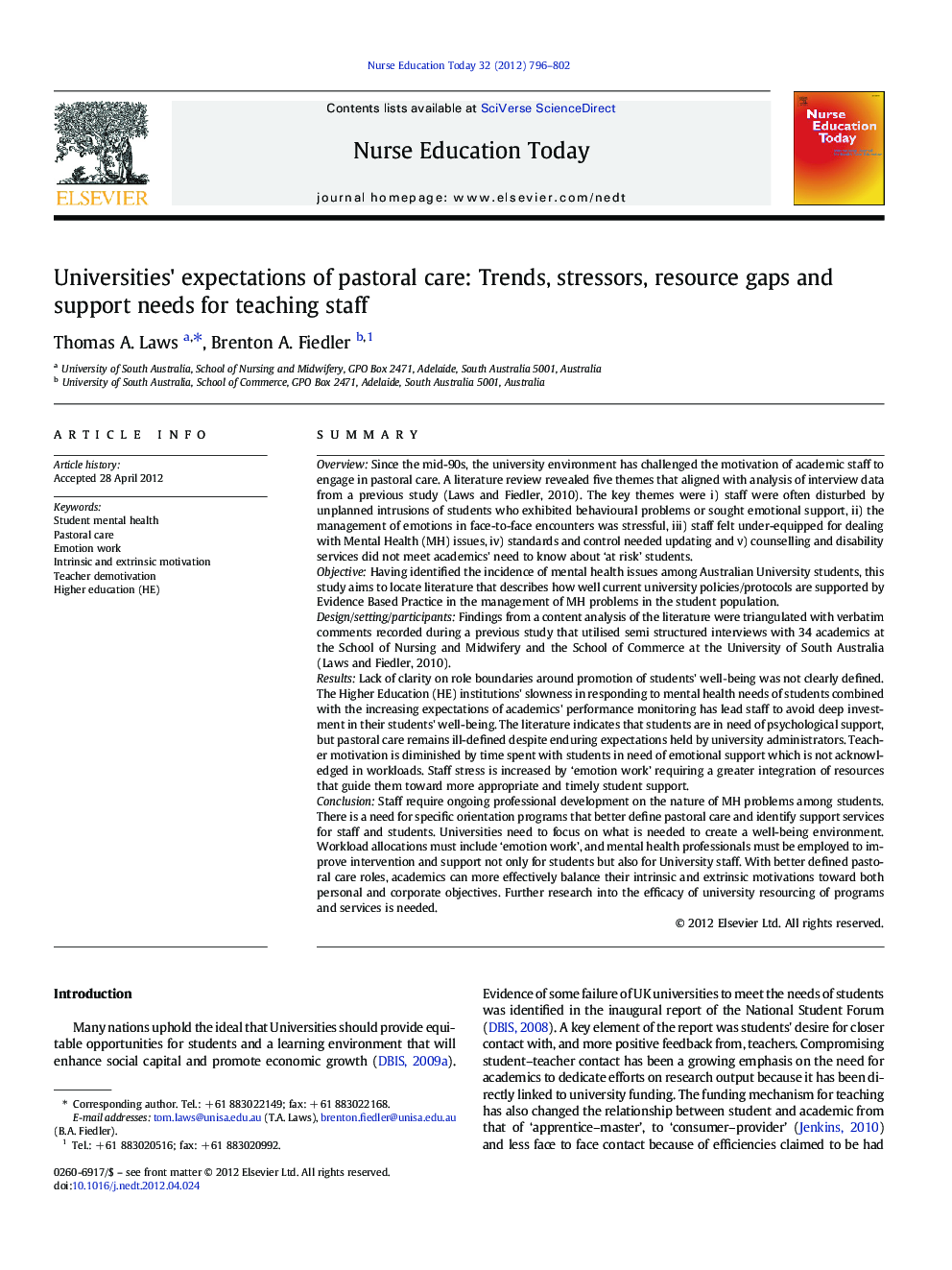| کد مقاله | کد نشریه | سال انتشار | مقاله انگلیسی | نسخه تمام متن |
|---|---|---|---|---|
| 368639 | 621588 | 2012 | 7 صفحه PDF | دانلود رایگان |

SummaryOverviewSince the mid-90s, the university environment has challenged the motivation of academic staff to engage in pastoral care. A literature review revealed five themes that aligned with analysis of interview data from a previous study (Laws and Fiedler, 2010). The key themes were i) staff were often disturbed by unplanned intrusions of students who exhibited behavioural problems or sought emotional support, ii) the management of emotions in face-to-face encounters was stressful, iii) staff felt under-equipped for dealing with Mental Health (MH) issues, iv) standards and control needed updating and v) counselling and disability services did not meet academics' need to know about ‘at risk’ students.ObjectiveHaving identified the incidence of mental health issues among Australian University students, this study aims to locate literature that describes how well current university policies/protocols are supported by Evidence Based Practice in the management of MH problems in the student population.Design/setting/participantsFindings from a content analysis of the literature were triangulated with verbatim comments recorded during a previous study that utilised semi structured interviews with 34 academics at the School of Nursing and Midwifery and the School of Commerce at the University of South Australia (Laws and Fiedler, 2010).ResultsLack of clarity on role boundaries around promotion of students' well‐being was not clearly defined. The Higher Education (HE) institutions' slowness in responding to mental health needs of students combined with the increasing expectations of academics' performance monitoring has lead staff to avoid deep investment in their students' well-being. The literature indicates that students are in need of psychological support, but pastoral care remains ill-defined despite enduring expectations held by university administrators. Teacher motivation is diminished by time spent with students in need of emotional support which is not acknowledged in workloads. Staff stress is increased by ‘emotion work’ requiring a greater integration of resources that guide them toward more appropriate and timely student support.ConclusionStaff require ongoing professional development on the nature of MH problems among students. There is a need for specific orientation programs that better define pastoral care and identify support services for staff and students. Universities need to focus on what is needed to create a well-being environment. Workload allocations must include ‘emotion work’, and mental health professionals must be employed to improve intervention and support not only for students but also for University staff. With better defined pastoral care roles, academics can more effectively balance their intrinsic and extrinsic motivations toward both personal and corporate objectives. Further research into the efficacy of university resourcing of programs and services is needed.
Journal: Nurse Education Today - Volume 32, Issue 7, October 2012, Pages 796–802